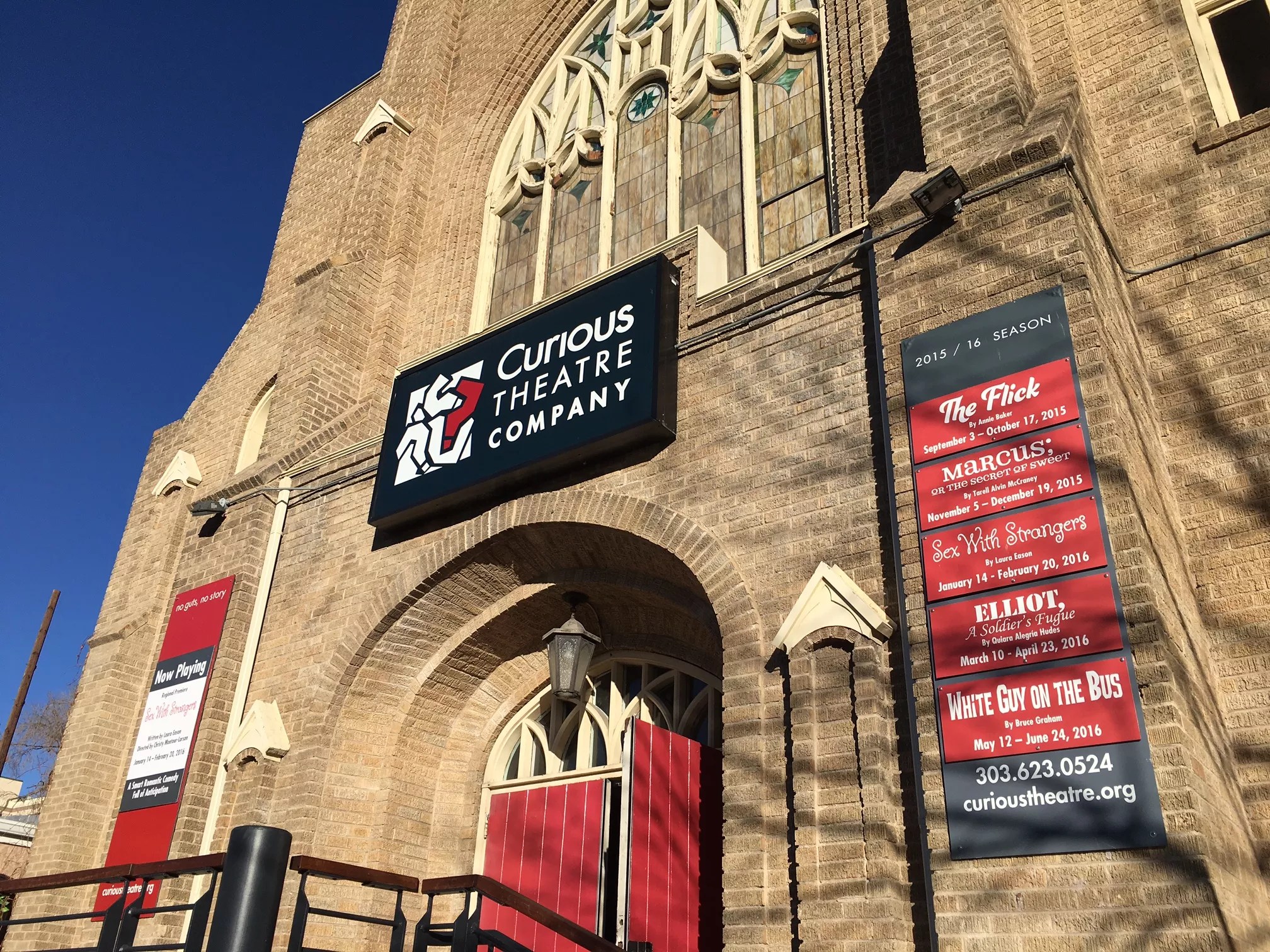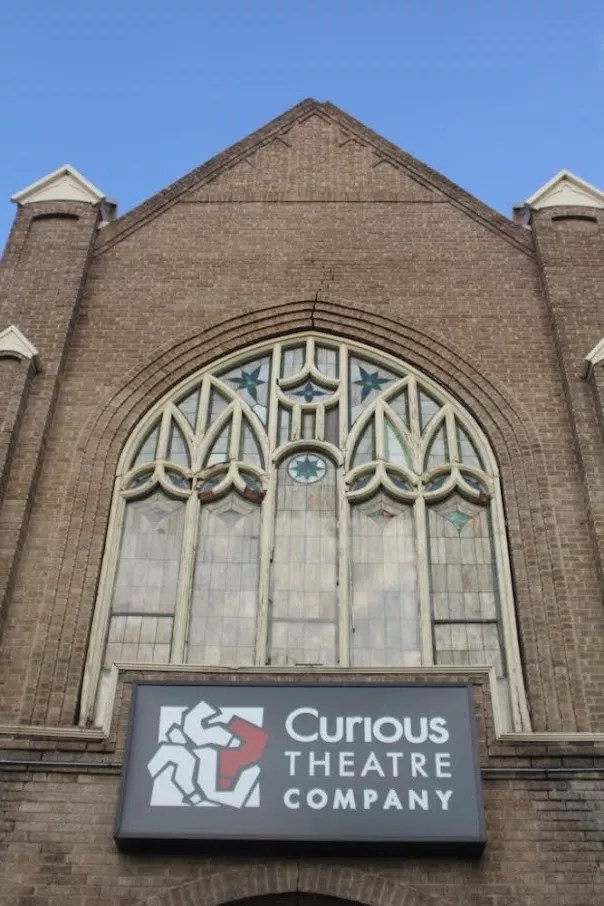
Courtesy of Curious Theatre Company

Audio By Carbonatix
As Curious Theatre Company unveiled its 27th season, the theater simultaneously made a clarion call to its community.
Faced with a $250,000 deficit, the company launched its “Fund the Future” campaign on March 1 to cover its shortfall by the end of July. Artistic director Jada Suzanne Dixon, who has been at the helm since 2022, says the company’s problems stem from its building as well as a decline in subscriptions, ticket sales and donors.
“It just felt very huge and like it was time for us to go to our community and tell them, ‘We need you,'” Dixon explains. “We are in a space of survival right now, and our hope is to move from surviving to thriving. However, we’re still in recovery, so we need people to provide donations on any level that is meaningful to them.”

Larger trends within the theater industry, including sagging subscription sales and the loss of donors, finally caught up to Curious.
Courtesy of Michael Ensminger Photography
In pre-pandemic years, Curious Theatre demonstrated robust financial health. Data from ProPublica for 2018 to 2022 show a fluctuating but generally positive net income for Curious, peaking in 2022 with a revenue of about $1.3 million against expenses of about $1.2 million. “We’ve been about a $1.2-million-dollar organization, even creeping towards $1.3 million,” says managing director Jeannene Bragg. “Right now, we are not there; we’re not able to support that level. There are some hard choices to make in the future, and we’re hoping the community will support us so we can figure out that model.”
By July 2023, the fiscal year ended with an imbalance between revenue and expenses, leading to a net loss of more than $335,000. This period also saw a significant decrease in both contributions and grants – down by almost $400,000 since 2022 – and program service revenue, which fell by nearly $35,000. And out of the eight shows Curious produced for seasons 25 and 26, only three exceeded sales goals. Larger trends within the theater industry, including declining subscriptions, in which customers purchase tickets upfront to see a theater company’s entire season, as well as the loss of donors, also caught up with the company.
“For years, people have been saying, ‘The subscription models are dying in the theater industry,’ but Curious has been bucking that trend,” Bragg says. “We had strong, even growing subscriber numbers when other theaters didn’t; however, after COVID-19, that turned for us, and now we’re seeing drops in subscriber numbers and donations. Those were both somewhat unexpected, at least at the level they’re at.”
Dixon doesn’t think that Curious “did a great job in maintaining our donor relationships” during the pandemic. “People have been loyal to Curious for many years, but because the economy has changed, people are thinking about their finances in very different ways,” she adds. “The arts sector has really suffered.”
And unlike theaters that program more commercial offerings, Curious is “a mission-driven organization committed to new plays,” Bragg explains. “Some of our colleagues around the country are like, ‘We’re putting in an extra musical and cutting a new play,’ but we can’t do that at Curious. That’s not our mission, so we don’t have sure-fire moneymakers to lean into to help us at this time.”

Curious’ financial difficulties have been exacerbated by the critical maintenance requirements of its space at 1080 Acoma Street.
Courtesy of Curious Theatre Company
Curious’ financial difficulties have also been exacerbated by the critical maintenance requirements of its space at 1080 Acoma Street, which was originally built in 1895 as the Swedish Evangelical Free Church. The cost to maintain this aging structure is significant, with an average monthly expense of $9,500 for basic upkeep. Bragg adds that last year, the roof and boiler had to be replaced, which cost nearly $100,000.
“The building has obviously been our biggest asset – it gives us a home and a place to be – but the part that isn’t talked about as much is that it’s also our biggest liability,” Bragg says. “It’s hard to keep up with the maintenance on the building, and those problems only increase over time, so unless you had the money to do a complete retrofit and fix all the systems, which we don’t right now, it’s a real challenge.”
Despite these expensive replacements, the building still requires significant structural and masonry repairs. Moreover, the departure of key staff members, including a finance manager with nineteen years of institutional knowledge, left a vacuum that was hard to fill. Curious hired outside firms to help with its finances, but Bragg says “that did not work out well.”
“It feels like we’ve been playing catch-up in terms of the financial data until now,” she adds. “I thought we were going to hit the ground running, meeting sponsors, community members and growing Curious’ support base, but some of the operational things that had to be retooled, including the finances, phone system and a myriad of other things, cut into the time we had to do that.”
To preserve Curious, the organization is embarking on a three-phase plan: recovery, reinvention and resiliency. Recovery entails stabilizing the theater’s current economic situation. “The first part is about closing the gap on our shortfall,” Dixon says. “Next is reinvention, which is scary and exciting; it includes how we open up our opportunity for strategic community partnerships and cultivate new donors. … And then resiliency is about ensuring the sustainability of the organization.”
Bragg explains that the company has been cutting all kinds of things from the company’s budget to keep the organization afloat, but admits it is not a long-term solution. “We’re at a crossroads where we’re going to have to cut something significant,” Bragg says. “We either cut people, do something different with the building or sacrifice the number of productions or quality. Quality is off the table for us, but we’re really at a place where the organization can’t fund itself right now at the level it’s been funded at in the past.”
To keep looking ahead, the company recently announced its 27th season, which includes POTUS, Or Behind Every Great Dumbass Are Seven Women Trying to Keep Him Alive, Downstate, Confederates, A Case for the Existence of God and one title that will be revealed later this spring.
This lineup exemplifies the company’s philosophy of “no guts, no story” and demonstrates that Curious remains committed to producing challenging, thought-provoking theater. “Not shying away from risks, even during all the financial stuff, is critical,” Dixon says. “I don’t want us to operate from a place of fear because it won’t serve us. All I have ever wanted is for Curious to survive for the next 25 years, and the next 25 after that.
“As the first woman of color in a large arts theater institution in the Denver metro area,” she continues, “I feel a huge responsibility to this organization and community. If something goes down, I am concerned that it will be perceived as a failure on my part, and I am not willing to have that happen, so I am in fight mode right now.”
Donate to Curious Theatre Company’s Fund the Future campaign at coloradogives.org.